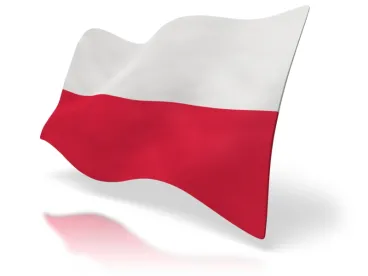The past few months have seen increased activity from the Polish Office of Competition and Consumer Protection (UOKiK), which resulted in fines for a number of entrepreneurs. We summarise below what we consider the most significant measures taken by UOKiK in 2020.
Fighting Payment Gridlocks
This is particularly evident when it comes to fighting the so-called payment gridlocks. UOKiK has handled such issues since 1 January 2020. As early as April 2020, it announced that in the wake of the COVID-19 pandemic, it would be paying much attention to this problem (we wrote about it previously). By the end of 2020, UOKiK had commenced more than 100 procedures against entrepreneurs who had defaulted on the payment deadlines set in the Act of 8 march 2013 on Counteracting Excessive Delays in Commercial Transactions. In the event of a breach, UOKiK may fine an entrepreneur.
Merger Control – Record Fine for Gazprom
On 6 October 2020, the president of UOKiK imposed a record fine of PLN30 billion on Gazprom and the participants in the Nord Stream 2 project for merging (creating a single entrepreneur) without UOKiK’s approval (UOKiK decision DKK-178/2020). In 2016, the project participants applied for approval to create a single entrepreneur – a company incorporated under the laws of Switzerland – originally owned by Gazprom, in which the participants were to acquire certain shares. Given UOKiK’s reservations, they withdrew, no longer intending to acquire shares in the single company. At the same time, the participants executed a Nord Stream 2 financing agreement, which – according to UOKiK’s decision – would de facto give them shareholders’ entitlements. In the course of the procedure, UOKiK found that despite the participants other than Gazprom not having acquired shares in the single company, such single entrepreneur had, in fact, been created, since the participants have a shared interest – they charge interest on the loans granted, and further, they had secured for themselves influence on the project in that the vehicle could not take strategic decisions without their consent. Thus, in UOKiK’s assessment, the project participants, not in the capacity of shareholders, had pursued the original project despite UOKiK not having consented. In other words, although they had not created a single entrepreneur de iure, they had done so de facto. In justifying its decision, UOKiK referred to the concept of the project participants circumventing the law.
The matter is interesting for several reasons. First, UOKiK imposed a fine for actions that are formally outside its remit and – by its own admission – that do not formally breach any laws, yet they are intended to attain an objective as to which UOKiK had expressed its reservations and may circumvent the law. Second, UOKiK found that certain entitlements of the financing entities may render them de facto shareholders of the entity receiving the financing. UOKiK‘s position, albeit erroneous in our assessment, may force investors to exercise more caution when drafting financing and collateral agreements whereby the financing entity may exert influence on the debtor’s operations.
Abuse of Contractual Advantage
UOKiK also redoubled its efforts pursuant to the Act of 15 December 2016 on Counteracting Unfair Use of Contractual Advantage in Trading in Agricultural Produce and Foodstuffs. On 11 December 2020, the regulator imposed a PLN723 million fine on Jeronimo Martins for breaching the act. The breach, according to UOKiK, concerned arbitrarily forcing suppliers to grant rebates and discounts that had not been included in the original contracts. This is a record fine hitherto imposed for breaching the provisions of the act.
Fines for Managers
2020 also saw the first fine imposed on an enterprise manager who had breached the antitrust laws. Pursuant to the act, if a manager has allowed an entrepreneur to breach certain antitrust laws (Polish or EU) or certain consumer protection laws, they may be subject to a fine of up to PLN2 billion. The competition and consumer protection laws whereby UOKiK may impose a fine on a manager have been in effect since 2015, yet up until December 2020, such threat had only been theoretical. In December 2020, upon fining Veolia group companies with PLN120 million for price and tender fixing, UOKiK also imposed a fine of PLN 200,000 on one of its management board members. Such measures on the part of UOKiK may soon be standard procedure. This poses a challenge for entrepreneurs and managers to act so as not to expose themselves to such allegations and their consequences.
What Does 2021 Have in Store?
The trends set by UOKiK’s actions described above are likely to continue this year. One ought to prepare for new regulations in relation to business operations via websites. Toward the end of September 2020, a draft amendment of the Act on Competition and Consumer Protection was up for public consultation. It is intended to enhance consumer protection online and boost the efficiency of measures taken by the president of UOKiK. As part of its new competences, UOKiK will be able to block entrepreneurs’ websites. We will provide more information about that in our next entry.






 />i
/>i
